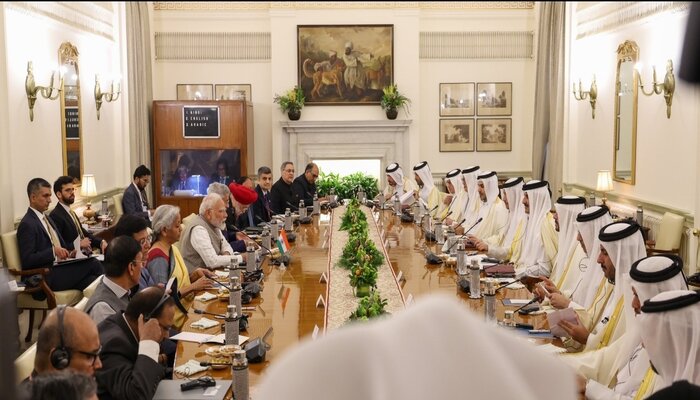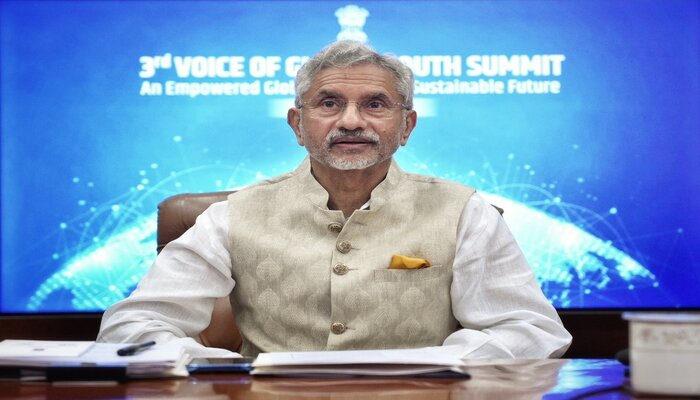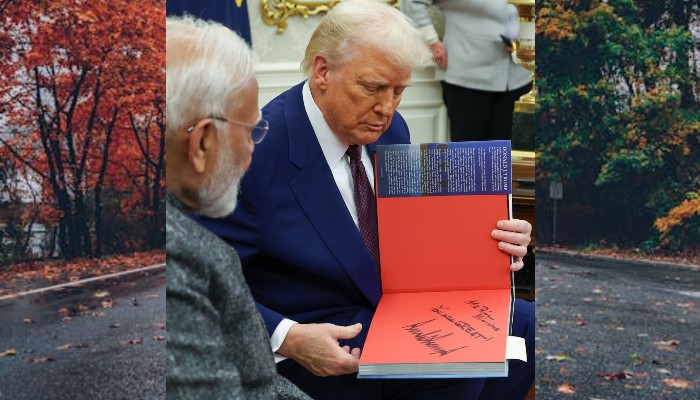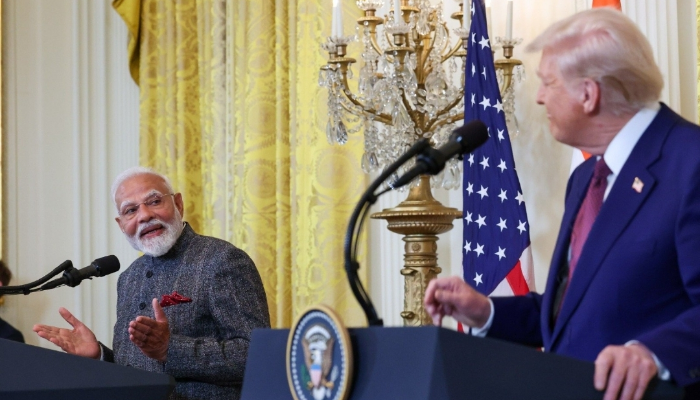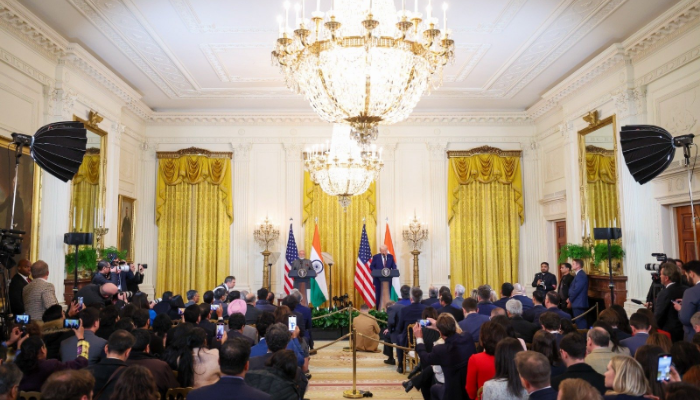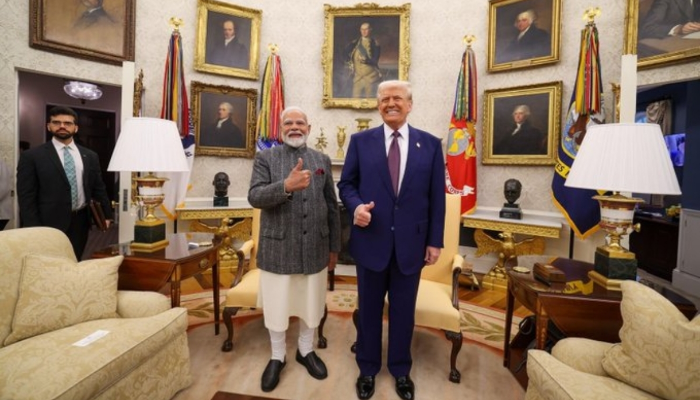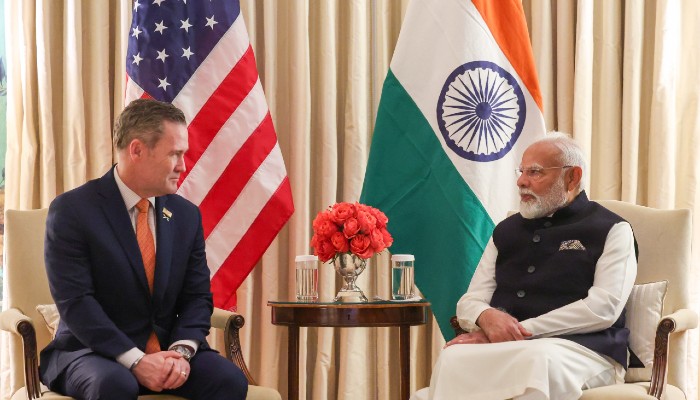India and Qatar have reaffirmed their commitment to strengthening security cooperation with a comprehensive approach to counterterrorism, cybersecurity, and transnational threats. The recent visit of Sheikh Tamim bin Hamad Al-Thani, the Amir of Qatar, to India has facilitated a deeper alignment between the two nations in addressing contemporary security challenges.
The discussions and agreements signed during this visit enable the shared objective of enhancing intelligence-sharing mechanisms, bolstering cybersecurity frameworks, and countering extremist ideologies.
Central to this reinforced alliance is the Agreement on the Establishment of Bilateral Strategic Partnership, which lays the foundation for extensive collaboration in security and law enforcement in addition to trade, energy, investment. Given the growing complexity of cyber warfare, terrorist financing, and radicalization, both nations have prioritized intelligence cooperation and enhanced security frameworks.
According to the joint statement issued after talks between the visiting Qatari Amir and Prime Minister Narendra Modi in New Delhi on February 18, 2025, both sides emphasized the importance of holding regular meetings of the Joint Committee on Security and Law Enforcement.
Disrupting Threats with Intelligence and Security Cooperation
During their talks, the two leaders unequivocally condemned terrorism in all its forms and manifestations including cross-border terrorism; they agreed to cooperate in combating this menace through bilateral and multilateral mechanisms.
Recognizing the increasingly sophisticated methods employed by extremist groups, India and Qatar have committed to strengthening real-time intelligence-sharing capabilities. This initiative will facilitate the timely exchange of critical security information to preempt potential threats.
Additionally, both nations will intensify cooperation in border security and counterterrorism financing, with a focus on disrupting financial networks that sustain terrorist organizations. Enhanced monitoring mechanisms will be implemented to prevent the misuse of financial institutions for illicit activities.
Cybersecurity and Digital Infrastructure Protection
As digital threats continue to evolve, India and Qatar have identified cybersecurity as a critical area of collaboration.
Their joint initiatives include:
Countering cyber-enabled financial crimes: Implementing stringent measures to curb money laundering and prevent financial networks from being exploited for illicit activities.
Securing digital payment systems: Ensuring the resilience of India’s Unified Payments Interface (UPI), which is being integrated into Qatar’s financial ecosystem.
Protecting critical infrastructure: Strengthening cybersecurity protocols for government and private sector networks to mitigate the risk of cyber intrusions and digital espionage.
Combating Radicalization and Extremist Networks
To address the persistent challenge of radicalization, both nations have adopted a comprehensive counter-radicalization strategy that includes:
Strengthening counterterrorism financing mechanisms: Blocking the financial resources that enable extremist activities.
Community engagement and de-radicalization programs: Implementing awareness campaigns to counter extremist propaganda and prevent recruitment.
Capacity-building initiatives: Enhancing training programs for law enforcement and intelligence agencies to detect and neutralize emerging security threats.
Joint Task Force on Counterterrorism: A Unified Front
To further institutionalize security cooperation, India and Qatar have established a Joint Task Force on Counterterrorism for:
Conducting coordinated investigations into terrorist financing and transnational crime networks.
Providing specialized training for counterterrorism units and law enforcement agencies.
Enhancing maritime security to prevent the illicit trafficking of arms and narcotics.
A Regional Model for Security Cooperation
The strengthened security partnership between India and Qatar sets a precedent for international collaboration in counterterrorism and cybersecurity.
The key outcomes of this alliance include:
Increased safety for businesses and expatriates, fostering a secure environment for economic and cultural exchanges.
Enhanced regional stability, with a proactive approach to addressing emerging security threats.
A framework for global counterterrorism cooperation, positioning South Asia and the Middle East as key players in maintaining international security.
By proactively addressing security threats and fostering institutional cooperation, India and Qatar are not only enhancing bilateral relations but also contributing to broader global security initiatives. Their joint efforts in counterterrorism and cybersecurity reinforce the importance of sustained collaboration in an era of evolving security challenges.
India and Qatar Boost Counterterrorism Ties
-
 The Bengal Desk
The Bengal Desk - Update Time : 11:43:00 pm, Thursday, 20 February 2025
- 77
Tag :
INN
Popular

